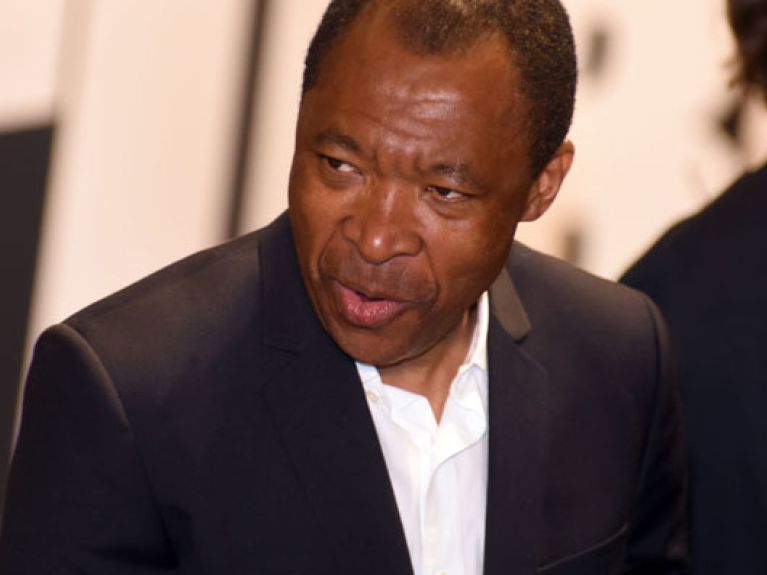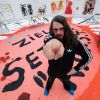A cosmopolitan
Okwui Enwezor turns the Eurocentric gaze round and directs it at its inventors.

His appearance hasn’t changed in 15 years: perfect suits, large strides, striking smile. Okwui Enwezor, the grand curator with a clear agenda. At the Venice Biennale in 2015 he was last seen striding across the field of battle, stooping slightly, not as a defeated hero heading away, but a man who after a long journey arrives at his goal, slightly tired. Okwui Enwezor, for some years now Director of Haus der Kunst in Munich, is the leader of an art movement that has been championing a transnational look at art for over 20 years.
Okwui Enwezor, born in 1967 in Calabar, Nigeria, had to move house countless times with his parents during the Biafran War and found his mission in life in 1994 in New York as a newcomer to art when he founded “NKA: Journal of Contemporary African Art”. Its one and only, clear, resolved issue brought the neglected African art scene back into focus.
It proved to be a launchpad that few would have used as efficiently as Okwui Enwezor. As early as 1996 he presented African photography at the New York Guggenheim Museum. His efforts were driven back then by the sober, realistic assertion that the Eurocentric perspective cannot be just. A large audience he did not have. Western art critics defended themselves bitterly. African contemporary art was looked down upon. If one compares the reception of African contemporary art in the year of the Guggenheim show (1994) with 2002, when Enwezor directed documenta 11 in Kassel, and with 2015, then the findings are obvious: The European ivory tower no longer exists in art. Not that Okwui Enwezor is a guerrilla activist. He is more the circumnavigator among the curators, who strategically and carefully defines his goals, knowing with which winds his boat can sail without an engine. He knows that he has to have influential people on board, too. Which sometimes impairs his authenticity, for example when he holds court in Kiev with oligarch Victor Pinchuk.
That said, the art business is tough today. It was only in this way that he could reach the great art harbour and in 2015 curated the largest and most important art biennial in the world, that in Venice. There he had viewers from all over the globe. That’s his arena. That fits the bill. Okwui Enwezor now has the power to decide the direction of things. He never exported the continent of Africa to the world, but good artists. In 2002 he turned the Eurocentric gaze round and focused it on its inventors. But now we’ve arrived in the post-Western world and many of the art cognoscente stare somewhat dazed in different directions, looking for orientation. Okwui Enwezor will think up something new, to direct the gaze, to undermine it, and redirect things. He has a vision. He’s always had one, and he will not lose it. ▪

